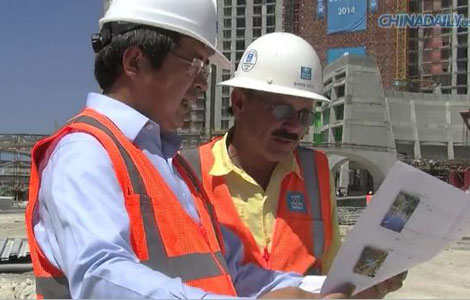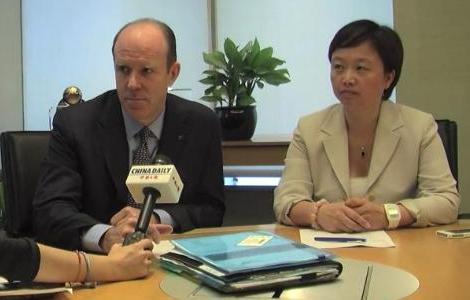Islamic State seizes large areas of Syrian town despite air strikes
Updated: 2014-10-09 20:44
(Agencies)
|
||||||||
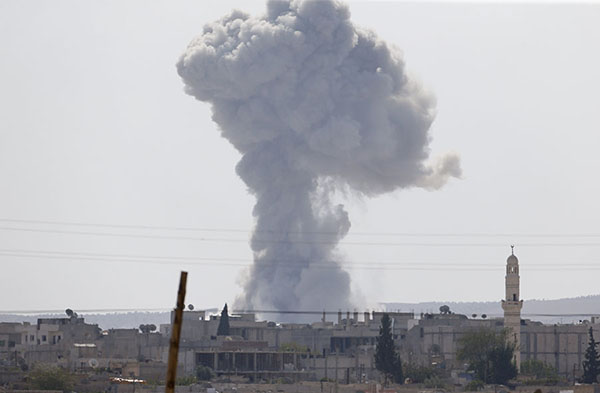 |
|
A woman walks past a tank from which Turkish soldiers keep guard on a main street in Diyarbakir October 9, 2014. Islamic State fighters launched a renewed assault on the Syrian city of Kobani on Wednesday night, and at least 21 people were killed in riots in neighbouring Turkey where Kurds rose up against the government for doing nothing to protect their kin. [Photo/Agencies] |
TURKISH CLASHES
At least 21 people died in the mainly Kurdish southeast ofTurkey on Wednesday during clashes between security forces andKurds demanding that the government do more to help Kobani.
There were also clashes in Istanbul and Ankara.
In Washington, the Pentagon cautioned on Wednesday thatthere are limits to what the air strikes can do in Syria beforeWestern-backed, moderate Syrian opposition forces are strongenough to repel Islamic State.
Islamic State has also seized large areas of territory inneighbouring Iraq, where the United States has focused its airattacks on the militants.
President Barack Obama has ruled out sending US groundforces on a combat mission, and Secretary of State John Kerryoffered little hope to Kobani's defenders on Wednesday. "Ashorrific as it is to watch in real time what is happening inKobani ... you have to step back and understand the strategicobjective," he said.
In Turkey, the fallout from the war in Syria and Iraq has threatened to unravel the NATO member's delicate peace process with its Kurdish community. Ankara has long been suspicious of any Kurdish assertiveness which puts itself in a tough position as it tries to end its own 30-year war with the outlawed Kurdistan Workers Party (PKK).
Following Wednesday's violence in Turkey, streets have been calmer since curfews were imposed in five southeastern provinces, restrictions unseen since the 1990s when PKK forceswere fighting the Turkish military in the southeast.
Erdogan said that protesters had exploited the events in Kobani as an excuse to sabotage the Kurdish peace process. "Carrying out violent acts in Turkey by hiding behind the terror attacks on Kobani shows that the real intention and target is entirely different," he said in a statement.
Kurdish leaders in Syria have asked Ankara to help establish a corridor which will allow aid and possibly arms and fighters to cross the border and reach Kobani, but Ankara has so far been reluctant to respond positively.
Saleh Muslim, co-chairman of the Kurdish Democratic Union Party (PYD) in Syria, met Turkish officials last week, Kurdish sources said, but the meeting was not fruitful.
The PYD annoyed Turkey last year by setting up an interim administration in northeast Syria after Syrian President Basharal-Assad lost control of the region. Ankara wants Kurdish leaders to abandon their self-declared autonomy.
Turkey has also been unhappy with the Kurds' reluctance to join the wider opposition to Assad.
On the Turkish side of the frontier near Kobani, 21-year-old student Ferdi from the eastern Turkish province of Tunceli saidif Kobani fell, the conflict would spread to Turkey.
"In fact it already has spread here," he said, standing with a group of several dozen people in fields watching the smoke rising from west Kobani.
Turkish police fired tear gas against protesters in the town of Suruç near the border overnight. A petrol bomb set fire to a house and the shutters on most shops in the town were kept shut in a traditional form of protest against state authorities.

 Silent HK majority urged to support government
Silent HK majority urged to support government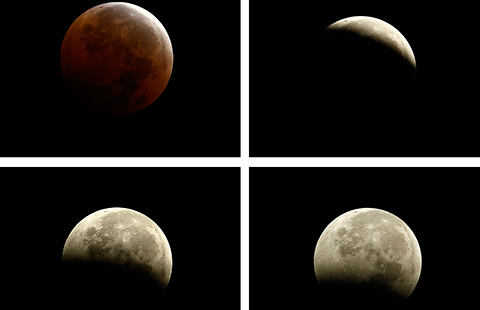
 Lunar eclipse in Asia and the Americas
Lunar eclipse in Asia and the Americas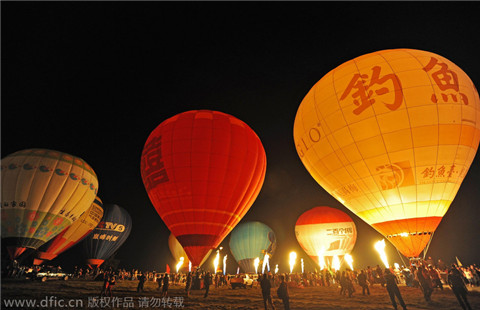
 Hot air balloon challenge in Wuhan
Hot air balloon challenge in Wuhan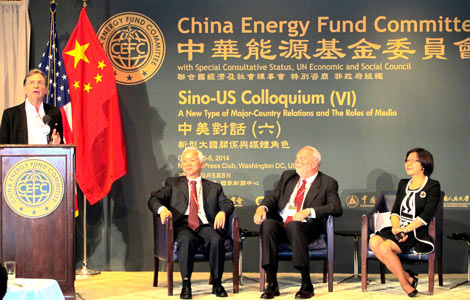
 Cultural bridge key for China, US
Cultural bridge key for China, US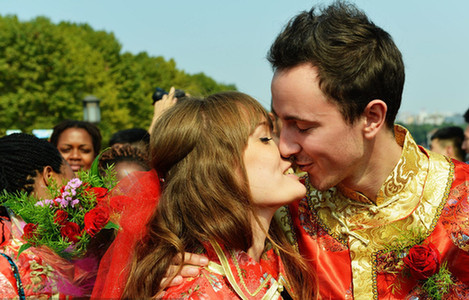
 Romance at the West Lake
Romance at the West Lake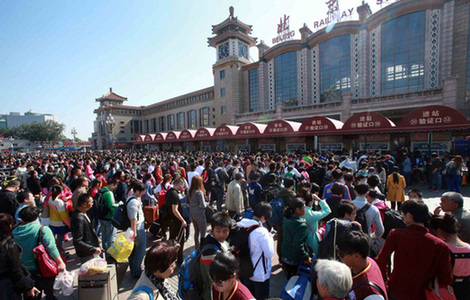
 Traffic embraces busiest day for holiday week
Traffic embraces busiest day for holiday week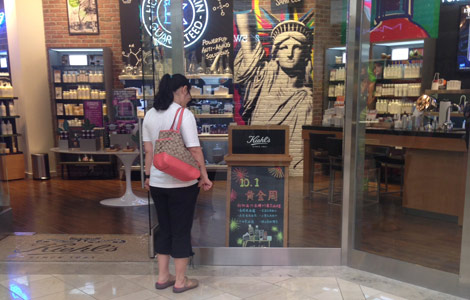
 Chinese tourists flock to US for Golden Week
Chinese tourists flock to US for Golden Week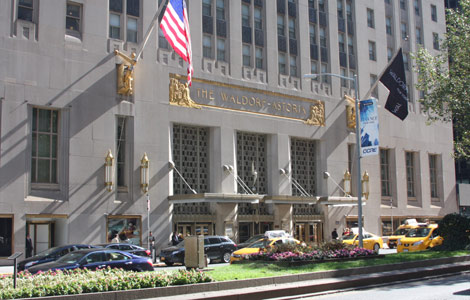
 Chinese insurer buys NYC's Waldorf Astoria Hotel
Chinese insurer buys NYC's Waldorf Astoria Hotel
Most Viewed
Editor's Picks

|

|

|

|

|

|
Today's Top News
US hospital to offer resources for new facility in Guangdong
China's role grows in Gates Foundation
US Ebola patient dies
Hopes for US, China trade high
China's 'Nightingale' races for Oscar
Holiday spending habits change
Xinjiang Corps to step up fight against evil forces
US offers to help tap Chinese market
US Weekly

|

|
